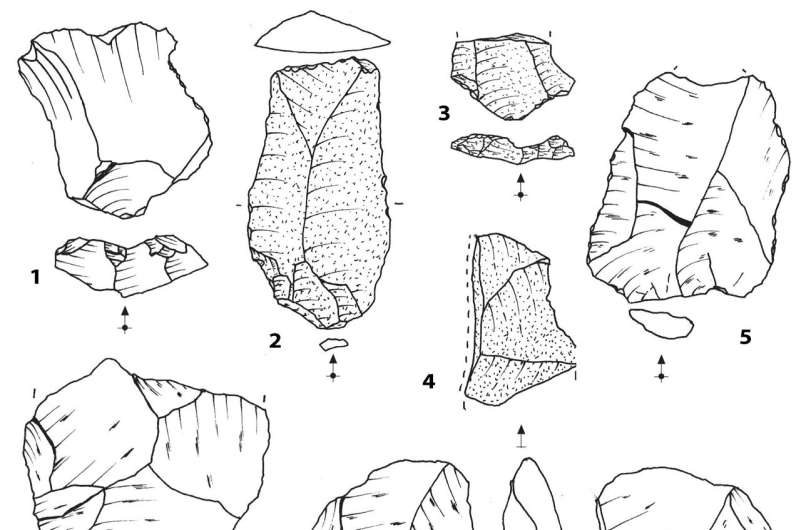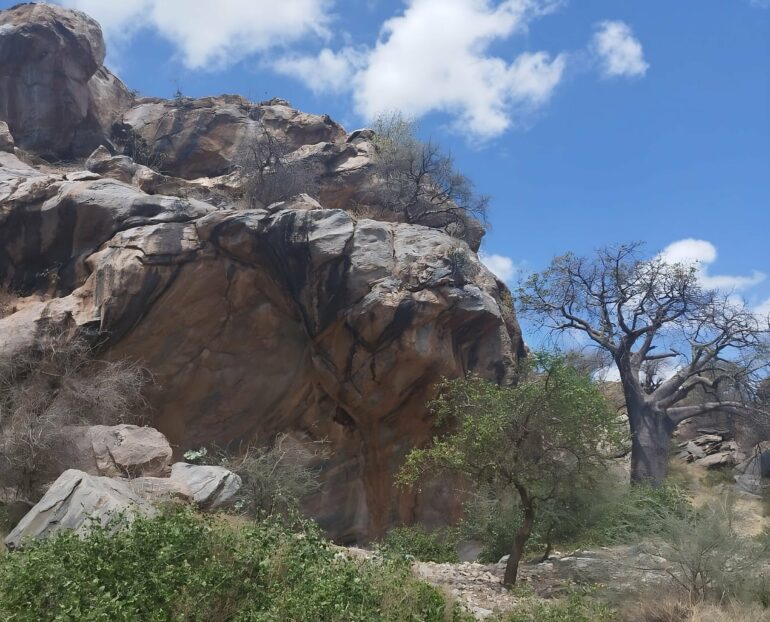Irene Solano Megías, a predoctoral researcher at the Centro Nacional de Investigación sobre la Evolución Humana (CENIEH), has just published the first techno-typological study of the most ancient lithic industry of level VI-B at the Mumba rockshelter in the journal African Archaeological Review. This site lies in the Lake Eyasi region in Tanzania, and the study has enabled better understanding of the activity of human groups in this region.
This is one of the most important sites in northern Tanzania from the period known as the Middle Stone Age (MSA). It was excavated in the 1930s and level VI-B was excavated between 1977 and 1981, but no data had been published until now.
According to the new study, the level VI-B lithic assemblage at Mumba is the result of settlement by groups of Homo sapiens present in the Lake Eyasi region between 109,000 and 131,000 years ago.
The combination of analyses such as taphonomy, lithic technology and typology has furnished revealing data about how the first modern humans manufactured their stone tools, and it draws the conclusion that this assemblage can be regarded as Sanzako industry as it had been defined previously. Sanzako is one of the earliest cultures characterizing the MSA in northern Tanzania.
“This study confirms that the Mumba level VI-B assemblage belongs to the Sanzako industry, and therefore this is an industry characteristic of that period in this region,” says Solano Megías, who is a member of the project “The first modern humans in northern Tanzania: Olduvai Gorge, Angata Kiti and Lake Ndutu,” which is led by José Manuel Maíllo-Fernández of the Universidad Nacional de Educación a Distancia (UNED).

Lithic industry. © Irene Solano Megías and José Manuel Maíllo Fernández
Diverse knapping methods
Local raw materials such as quartz were employed at Mumba, although a small proportion of obsidian was recognized, originating from the Lake Naivasha basin in Kenya some 320 km away, which suggests that long-distance exchange networks between human groups already existed in this period.
“This was a recurrent place for hominin groups in this region over 130,000 years, covering the Middle Stone Age, Later Stone Age, Pastoral Neolithic and Iron Age,” she adds.
The tool knapping methods were predetermined ones like discoid, Levallois and, to a lesser extent, the more expeditious methods of bipolar type. This scenario is consistent with classifying the lithic assemblage as of MSA Sanzako type, as it had previously been defined.
That being said, it does present certain characteristics not completely matching what had been described up to now in the 1930s collections, where there was significant presence of the Levallois and heavy-duty tools methods.
“We now know that the assemblage in the new study is characterized by a strong presence of the discoid method, with rather less Levallois and an almost complete absence of heavy-duty pieces. These characteristics are encompassed within the techno-typological variability reflecting the sociocultural and economic changes entailed by the MSA,” states Solano Megías.
More information:
Irene Solano-Megías et al, Deciphering Middle Stone Age Technological Behaviors: An Analysis of the Lithic Technology from Level VI-B at Mumba, Tanzania, African Archaeological Review (2024). DOI: 10.1007/s10437-024-09582-9
Citation:
The first lithic study of level VI-B at the Mumba site in Tanzania reveals Middle Stone Age industry (2024, May 21)



